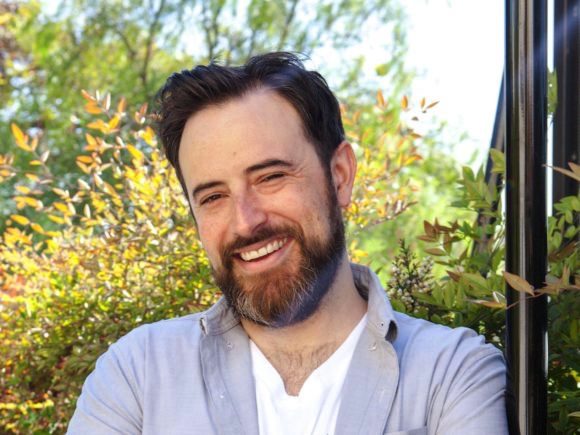An offshore reinsurer has placed a bet that the future of insurance claims will include an option for consumers to resolve disputes online rather than in court.
Greenlight Re, a specialty property casualty reinsurer based in the Cayman Islands, announced that it has invested in FairClaims, an online dispute-resolution vendor.
“The U.S. property and casualty insurance industry alone spends nearly $30 billion annually to defend claims,” stated Chief Executive Officer Simon Burton. “It is widely recognized that current methods for resolving insurance disputes in the US are time-consuming, inefficient, and expensive.”
Greenlight did not disclose the amount of its investment, but FairClaims founder Stephen Kane said in a telephone interview that the reinsurer’s stake was a part of a total of $3.8 million raised from private investors.
Kane said he was inspired to launch fair claims through his experience as an attorney representing small businesses in Los Angeles and San Francisco. He said he was often asked to step in to resolve disputes involving relatively small amounts of money. In many of those cases, it didn’t make any sense to hire an attorney.
Kane said he designed FairClaims to allow consumers to enter data about their claim and attach any documents that can be used as evidence. The program allows parties to make and accept or reject settlement offers.

Kane said the system, designed to operate much like TurboTax, educates consumers about the claims process. FairClaims can be used for binding arbitration or simply as a negotiating tool. As consumers go through the process, they learn about each element of their claim and are asked to assign values.
“It’s more like we guide the consumer,” he said. “We go the consumer and say, ‘Here’s the formula,’ and we demystify it for them.”
Kane said consumers will not use online tools unless they understand how they function. “This new generation will not tolerate any lack of transparency,” he said.
Kane said FairClaims up to now has served a few private clients who use it to deal with consumer complaints. The investment by Greenlight will finance an expansion into the insurance field. FairClaims has hired licensed attorneys who will step in and act as arbitrators for insurance claims, he said. In all, eight employees work at the firm’s Los Angeles headquarters.
Kane said FairClaims last fall launched a pilot project with a third-party claims administrator, its first foray into insurance field. He said 35% of consumers who were identified as “likely to litigate” and given the option to use FairClaims decided to opt in.
FairClaims was involved in negotiations to settle 53 claims so far. The average settlement was $2,750 less than the initial claimant demand.
Kane said he expects about one third of insurance policyholders who are given the option to use the FairClaims system to take advantage of the option.
“Given the volume of insurance claims in general and the massive market size, we feel it’s enough to build a big business,” he said in an email. “Not to mention we can expand to handle a variety of first- and third-party property and casualty claims in a variety of ways.”
FairClaims enters a crowded field. The National Center for Technology and Dispute Resolution maintains a database that lists more than 80 online dispute-resolution providers. Those include well-known institutions such as the Better Business Bureau to tech start up such as Resolve Disputes Online, which says it is “Making Justice Effortless and Accessible.”

VirtualCourthouse.com, founded in 2001, is one of the longest-standing dispute-resolution websites. Chief Executive Officer Arthur Monty Ahalt said his involvement in the business grew out of his work as a Circuit Court judge in Prince George’s County, Maryland. Ahalt oversaw the development of an online court records system as chairman of the court’s technology committee before retiring from the bench in 1999.
Ahalt said using online tools to negotiate insurance claims is not a new idea. He said VirtualCourthouse did several pilot projects with carriers in 2009 and 2010, but none evolved into permanent partnerships.
Ahalt said his sense is that claims adjusters aren’t ready to allow a software program handle claims negotiations. He said he’s still in touch with the claims people who participated in the pilot program.
“I deal with claims managers on a daily basis,” Ahalt said. “Claims managers don’t have confidence that they will still have control of the claim.”
University of Missouri School of Law professor Amy J. Schmitz, who has published dozens of scholarly articles on online adjudication systems, said she’s surprised that the insurance industry isn’t already heavily invested in online claims negotiation.
Schmitz said back in the early days of Internet commerce, around the year 2000, she and other legal scholars thought that the insurance sector would jump full bore into online adjudication systems. She said they seem a natural fit because they can deliver results quickly at a minimum expense.
Instead, most of the growth in online dispute resolution has come in the area of family law, she said.
She said the insurance industry is missing an opportunity.
“These work quite well in areas where people cannot afford an attorney,” Schmitz said. “That’s kind of what the the goal is, access to justice.”
Was this article valuable?
Here are more articles you may enjoy.

 Walmart to Pay $100 Million to Settle FTC Case on Driver Wages
Walmart to Pay $100 Million to Settle FTC Case on Driver Wages  Stellantis Weighs Using China EV Tech for Affordable Cars
Stellantis Weighs Using China EV Tech for Affordable Cars  Building Fortification And The Role of The Insurance Industry
Building Fortification And The Role of The Insurance Industry  Red Flags Adjusters Should Look for in Truck Accident Claims Investigations
Red Flags Adjusters Should Look for in Truck Accident Claims Investigations 